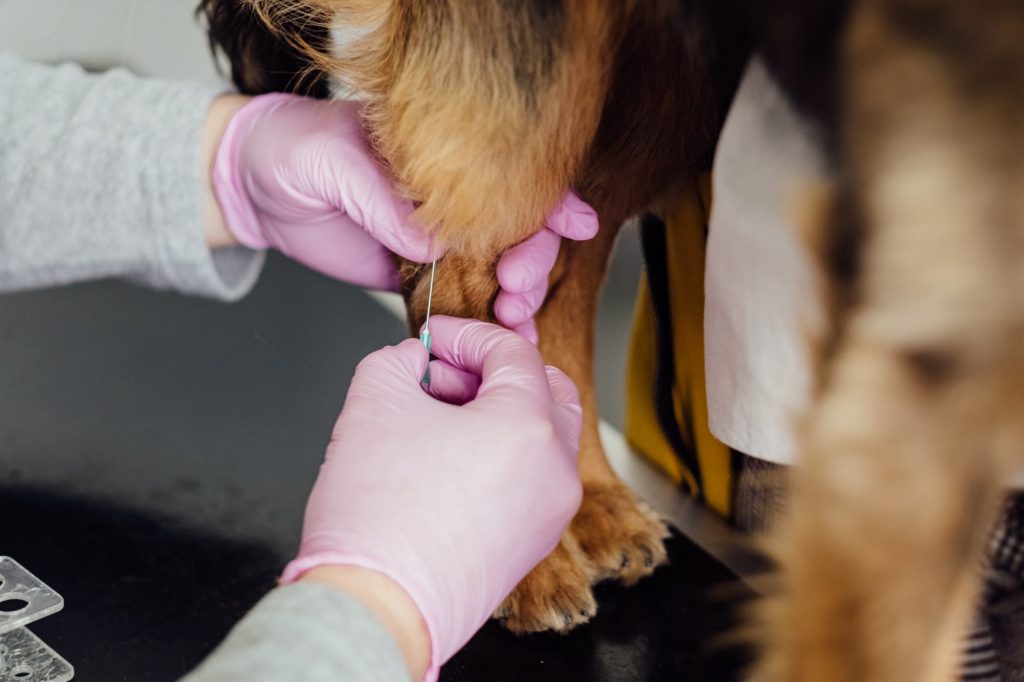
If it isn’t too obvious yet, animals have emotions too. Stressful events that affect you can also have a negative impact on them. Whether your relocation takes you down the street or across the country, remember that your pet is also part of the moving process. That’s why you should plan your move while keeping your dog or cat’s well-being in mind.
Below are stress-free tips on how to relocate with your four-legged friend.
Gather Supplies in Advance
Besides making things easier for you, expediting the preparation will also benefit your pets. How? Since cats are known to be picky with people and their surroundings, bringing in the boxes early and having movers come over to make an estimate will help them get accustomed to changes in the environment. And while you’re at it, secure a ‘safety cage’ for your pet so they won’t get caught in the commotion during moving day.
Get in Touch with Your Vet
Pay attention. There’s no other tip more important than this one. See, your pet’s vet is their second-best friend (after you!). As a professional, he knows how to best care for your pet. Take note that some dogs get car sick just as humans do. If you’ve traveled with your pet before, here are some signs that they are experiencing motion sickness:
- excessive drooling
- whining and pacing
- lethargy and inactivity
- vomiting and diarrhea
- lip-smacking or licking
- tongue drooping out
To make travel more enjoyable for both of you, talk with your vet about giving your pet a proper dosage of Dimenhydrinate (Dramamine). If the situation’s pretty bad, you can ask to have your pet sedated for the journey’s duration.
Other essentials you should ask for are your pet’s medical history and up-to-date vaccination records. The new vet is going to need those. Additionally, these documents will also come in handy if you need to stop at a hotel. Some establishments require you to show these papers before allowing you to stay for the night.

Hire a Good Moving Company
What’s with the skeptical look on your face? This tip is more relevant than you think. With professional long distance movers, you can trust them to handle complications and leave the entire operation to them. You can then focus on making the move comfortable for you and your pet. Plus, since your belongings will be safely tucked away on the moving truck, you’ll have more space inside your car for your pet.
Do Your Homework
Different states have varying takes when it comes to animal care. Before stepping on the gas, make sure you understand the laws and regulations in your new city. Ask your soon-to-be landlord or local authorities the dos and don’ts for animals within the community.
As stated earlier, some states will require you to submit vaccination records and medical history signed by a veterinarian. Some exotic pets like tarantulas and snakes will probably need additional documents to prove that they don’t pose a threat.
In the worst-case scenario, pets are prohibited, and you’ll have no choice but to give them up for adoption. This would be heart-breaking for both of you. That’s why it’s necessary to research before making your move.
Getting Ready for the Trip
At last! After doing some probing, making the trip to the vet, and getting hold of necessary papers, your pet’s finally cleared to hit the road. All that’s left to do is prepare. But where do you start? Don’t worry. Things are much easier now that you’ve come this far into the process.
- Pet supplies. Make sure you pack your furball’s favorite toy, a bed, or a cage with a built-in seat belt loop, medication, food, and a regular leash plus a spare.
- Spending the night. Remember to bring the documents from the vet during the trip. Some hotels won’t let you in without them! However, some establishments strictly prohibit animals, so it’ll be a good idea to book a pet-friendly place to stay ahead of time.
- Dos and don’ts during the trip. Be sure to seat your dog or cat somewhere you can easily pet them. This will help reduce stress. Also, keep in mind that dogs need occasional stops for walks, so it’s a good idea to sit near the car door. However, you shouldn’t do this with cats since they could jump out of the window when agitated and taken by surprise.

Other Options to Transport Your Pet
In cases where you can’t bring your pet on a road trip, like someone in the family is seriously allergic to fur, you may need to travel by air or arrange a pet transport service.

